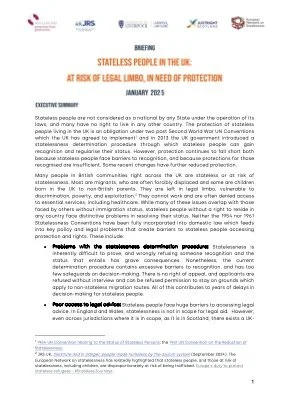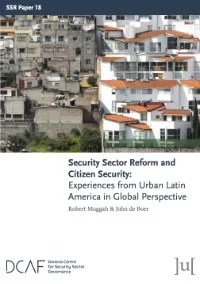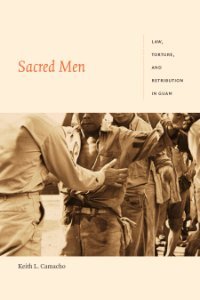By The International Crisis Group
What’s new? A violent siege of Haiti’s capital in early 2024 triggered the creation of a transitional government and the eventual arrival of a Kenyan-led mission to help counter the gang threat. But infighting has paralysed the government, empowered the gangs and made it unlikely that planned elections can come off safely. Why does it matter? Haiti urgently needs a legitimate government able to lead the campaign to curb gang violence and respond to the country’s dire humanitarian emergency. But holding polls prematurely could backfire, allowing gangs to play a deciding role in the vote and entrenching their power. What should be done? Haiti’s transitional authorities should strive to overcome internal wrangling and chart a realistic path to safe elections and constitutional reform. With future U.S. funding in doubt, the UN Security Council must find a way to support either the existing international security force or a peacekeeping mission to weaken the gangs.
Efforts by Haitian politicians and their foreign partners to quell surging gang violence have yet to bear fruit. A transitional government drawn from the country’s main political forces took office in April 2024, promising to hold the first elections in nearly a decade. Soon thereafter, the first contingent of Kenyan police disembarked, part of an international security mission tasked with loosening the gangs’ stranglehold on the capital Port-au-Prince and its vicinity. But the hopes invested by Haitians in the transitional government and the foreign mission remain unfulfilled. Partisan infighting and corruption allegations have prolonged political dysfunction. Violence rages, with gangs perpetrating some of the worst massacres ever as the understaffed, underfunded foreign mission struggles to rein them in. With safe elections looking improbable in the near term, transitional authorities should get past their internal disputes to plot a realistic course to polls and constitutional reform. The UN Security Council, for its part, must decide how best to respond to Haiti’s request for support in fighting the gangs. February 2024 saw a grim milestone in the gangs’ growth but also the beginning of what seemed to be a concerted effort to stabilise Haiti. Instead of fighting one another, gangs banded together to mount a multi-pronged assault. Besieging Port-auPrince, they cemented control of more than 80 per cent of the city, emptied jails, ransacked police stations and forced the airport to close. With Prime Minister Ariel Henry stranded in Kenya, where he had been negotiating deployment of the security support mission, the time was ripe for a bold response. Caribbean countries, the U.S. and other foreign states gathered Haiti’s leading political forces for a summit in Jamaica on 11 March, prodding them to form a transitional government to take Henry’s place. The idea was that with a new cross-party government promising a route to fresh elections, the country’s leaders could arrest plummeting public trust in the state and the collapse of its institutions. In tandem, the foreign mission would arrive to join local police in beating back the gangs. Marrying the goals of rebuilding legitimate government and restoring security, the plan was geared around leadership by a new Transitional Presidential Council, alongside a prime minister whom it would appoint. This arrangement, however, proved to be a seed of fresh strife. Council members clashed repeatedly with the first prime minister, Garry Conille, a long-time UN official. Conille’s dismissal in November and replacement by businessman Alix Didier Fils-Aimé ended the impasse, while also sending a clear message that the council would run the show. But the wrangling did not stop. Council members are also at loggerheads with the political groups they are supposed to represent, known as the “sectors”, which see the councillors’ growing independence as a threat to their interests. Some parties are so affronted by their supposed loss of power that they have demanded a radical overhaul of government. Lastly, corruption charges against three councillors, who have refused to resign or cooperate with the authorities, have corroded the government’s public standing. To make matters worse, plans to push through constitutional reform, to be voted on at referendum in the first half of 2025, as well as hold elections before year’s end, have made scant progress. Members of provisional electoral bodies were appointed only in December, and Haiti lacks an up-to-date voter register. Moreover, polls held in current conditions would be unsafe for candidates and voters alike. Despite isolated achievements by police and the foreign mission in their campaign against the gangs, these groups control much of the capital and essential roads to the rest of the country, while fighting is expanding into other regions. In the past five months, gangs have carried out at least four massacres – carnage that has claimed around 400 lives. Staggering the voting schedule or placing polling stations outside gang-controlled territory could make balloting possible in some areas. But the result would likely be very low turnout, possibly under the 20 per cent witnessed in Haiti’s last polls in 2016. Gangs could also sow fear in places under their sway to ensure that their allies win positions of power. Instead of rushing toward elections, the transitional government should focus on the nuts and bolts of responsible governance. Drawing on the agreement that created the administration, it should establish an assembly where political groups represented in the Transitional Presidential Council can resolve their grievances without threatening to upend the state. The authorities should also act quickly to appoint a National Security Council and to provide the secretary of state for public security with the support required to map a strategy for reducing violence anchored in concrete, achievable steps. The government should also show it is serious about fighting corruption by ensuring that its members are held accountable. Transitional authorities should work alongside foreign partners to explore how security assistance from abroad can be made more sustainable and effective. It is all the more crucial that they do so at a time when funding from the U.S., Haiti’s main donor, has been partially frozen by the Trump administration, putting Washington’s commitment to underwrite future security operations in serious doubt. Donations for the multinational mission have fallen far short of what was expected, and not all the promised 2,500 officers and materiel have arrived. The UN could backstop the mission’s financial and logistical needs along the lines of its support for African Union forces in Somalia, but it is unclear whether this approach would address all the current gaps in its operations. The UN Security Council is also considering the possibility of turning the Kenyanled force into a blue-helmet peacekeeping operation, as the Haitian government has requested, which would help address the mission’s funding shortfall. Should the Council choose this option, the UN, in close coordination with Haitian authorities, should make the campaign to weaken gangs its priority and stand ready to follow up with support for state-building and development. For almost three years following President Jovenel Moïse’s assassination in July 2021, many Haitians cried out for a government that could build on broad public support to quell rising violence. The gang siege of Port-au-Prince appeared to mark a turning point. But Haiti’s transitional government has been drawn toward battles of self-interest rather than the pursuit of safe polls. The country’s new leaders should now rise to the occasion, working with foreign partners to stem the bloodshed that has tipped Haiti close to the breaking point.
Latin America & Caribbean Report N°107, Port-au-Prince/Mexico City/New York/Brussels : International Crisis Group, 2025. 40p.





















